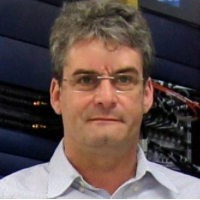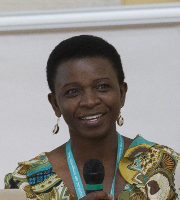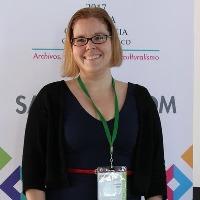Blog
Unless otherwise stated, content is shared under CC-BY-NC Licence
An Open Data Policy for CERN…and an important step in preserving the digital legacy of the Large Hadron Collider
Dirk Duellmann is the Head of Scientific Computing Collaborations group, CERN IT department
CERN and the High Energy Physics (HEP) community in general have a long tradition of applying Open Science concepts already well before today's term "Open Science" had been invented. Due to the size and complexity of large-scale particle accelerator and detectors projects, our community was forced from early on to consolidate effort and share key infrastructures such as accelerators, computing resources (both at CERN and world-wide partner labs) and also its crucial software investments. This culture has, in comparison to other sciences, created an early coherence across the HEP community that facilitated the collaborative development of open software over the decades, and enabled an open exchange of data analysis methods and science results.
What and how would you like to learn about PREMIS?
Authors: Angela Dappert, Karin Bredenberg, Micky Lindlar, Tracy Meehleib, PREMIS Editorial Committee
When asking a room full of digital preservationists whether they know PREMIS, most will raise their hand. Most understand key concepts including Objects, Rights, Events and Agents. But open questions remain for them and we need to support new practitioners. The PREMIS Editorial Committee wants to make PREMIS approachable and make it easier for people to understand and use preservation metadata. What kind of materials are people looking for? Short webinars on specific issues? Longer tutorials? Implementation stories? A short live survey gave us insight into the community’s needs.
PREMIS is the de facto standard for digital preservation metadata. It captures technical, provenance, rights, and platform information that is needed to ‘ensure the viability, renderability, understandability, authenticity, and identity of digital objects in a digital preservation context’[1].
PREMIS is widely adopted in open-source, commercial and in-house developments. It has reached a high level of maturity. Version 3.0 was released in 2015. It has proven to be stable and to be doing what it is supposed to: Defining digital preservation metadata that ‘most preservation repositories need to know to preserve digital materials over the long term‘.
COVID-19: Advancing the Digital Participatory Microhistory
Bonface Odhiambo is a University Archivist, United States International University- Africa. He is representing the Kenya Association of Records Managers and Archivists (KARMA) and International Council of Archives (ICA).
The year 2020, will be one of the memorable years that will never fade away from people’s minds. Everyone will tell you how COVID-19 disrupted their lives, how the pandemic led to several deaths, how lockdowns brought about travel restrictions, how they lost their jobs and many more. Despite the myriad of shortcomings, the pandemic has instead reinforced the participatory or post custodial perspective towards digital preservation. Building on the UNESCO communication on turning the threat of COVID-19 into an opportunity for greater support to documentary heritage and ICA’s declaration that the duty to document does not cease in a crisis, it has become more essential and necessary to advance the digital participatory micro history. As a digital preservation enthusiast, I believe that this year, the current situation, has set the pace for a new paradigm in preserving heritage and culture. Let’s embrace “Digits for Good” as a rallying call, and let’s use the pandemic as an opportunity to advance the digital preservation landscape.
Does anyone know how the coronavirus changed the world?
Alicia Pastrana García and José Carlos Cerdán are part of the Non-Print Legal Deposit department at the National Library of Spain
I know, you are living it, you know how your day-to-day life is changing but, what about your grandchildren? Will they understand how this is changing our lives? The best view of our society is on Internet, especially on social networks. How will a researcher of the future understand this change if he does not have access to all the information that is flowing on the Web? Is anyone preserving all that information?
Yes, someone does!
At the National Library of Spain, we are doing just that, like many other national libraries around the world. We began nominating websites about the emergence and spread of the coronavirus in mid-February, responding to a call from International Internet Preservation Consortium (IIPC). But when the situation got worse in Spain, we decided to create our own collection, making a much more exhaustive selection. Thus, the first Spanish crawl was launched on March 10th. Since that date, both we and our collaborators from the regional libraries, within the framework of the Library Cooperation Council, began an intense work of searching and nominating the information published on the Internet related to this topic.
We have already collected one of the most important web collections in our history. The number of pages that appeared and are still appearing to the situation caused by the expansion of the coronavirus is immense and most of them will disappear once this great crisis is over. Web collections will become one of the largest sources of information about the situation caused by COVID-19.
Digital preservation for research datasets
Antonio Guillermo Martinez is the CEO and founder of LIBNOVA and is based in Madrid, Spain.
The following blog is also available in Spanish below:
Last year, in our guest blog post for the DPC we wrote about “Augmenting the community, lowering the risk internationally” and we commented that many times individual problems related to digital preservation have a solution by looking at the experience of the community. This year the theme for the World Digital Preservation Day is ‘Digits: For Good´, and we want to focus on digital preservation of research datasets.
Let's look back, LIBNOVA promise from the beginning is to provide the most advanced digital preservation platform to the community. And we are achieving it step by step.
A few years ago, we created LIBNOVA RESEARCH LABS, to coordinate the lines of research to be followed in technological innovation within the company. At the same time, we have been doing market research to understand the needs and the differences between sectors (e.g., cultural heritage vs research). And finally, last year, the confluence of these two paths has led us to the development and launch of a ground-breaking research data management and preservation tool.
But what have we learned along the way?
Pushing through the pandemic...for good: a brief look at the digital preservation programme at the International Residual Mechanism for Criminal Tribunals
Angeline Takawira-Magaya is a Digital Archivist at the International Residual Mechanism for Criminal Tribunals ("IRMCT" or "Mechanism")
During the pandemic, the International Residual Mechanism for Criminal Tribunals ("IRMCT" or "Mechanism") has been hard at work preserving the records of the International Criminal Tribunal for Rwanda (ICTR), the International Criminal Tribunal for the former Yugoslavia (ICTY) and the Mechanism. If you're wondering what we've been up to, take a few minutes to read all about what we've been doing and why we are doing it!"
Q: What is digital preservation and why is it important?
A: Digital preservation is the active management and maintenance of digital objects to ensure that they continue to be accessible and useable for as long as required.
A key feature of effective digital preservation is that it is a process which is active and on-going and not a one-off event after which we fold our arms and sit back.
So, for example putting our digital data on robust and secure storage systems would allow us to keep the data but would provide no assurance that the data would continue to be accessible or useable over time, even if we took good care of the storage systems and upgraded them routinely.
With a mandate to preserve, we recognized that we needed to do more than just ‘keep the data’. We needed more than just secure and robust storage.
Digits: For good – Preserving social sciences COVID-19 data for reuse
Ingrid Dillo is Deputy Director at DANS and is co-chair of the RDA COVID-19 Working Group. Marjan Grootveld is Coordinator Projects and Policy at DANS and involved in FAIRsFAIR.
Under the umbrella of the Research Data Alliance (RDA) and on request of the European Commission more than six hundred data professionals and domain experts developed guidelines for sharing research data to address the COVID-19 pandemic. The guidelines for researchers, published in July 2020, help four domains to find a balance between timeliness and accuracy: clinical science, omics, epidemiology, and social sciences. Instruments and practices mentioned in the guidelines include data management plans, metadata, and ethical and privacy considerations, along with the technology needed for this. Furthermore, the RDA COVID-19 Working Group’s report contains recommendations for governments and research funders, for instance to promote open science through policy and investment, across international jurisdictions. Documentation is seen as crucial for all stakeholders. While researchers should document their methodology, data cleaning, and data provenance, decision makers should document their decisions. And of course, documentation should be preserved for the future.
Celebrating 2020’s Digital Preservation accomplishments at the National Library of Luxembourg
Roxana Maurer is the Digital Preservation Co-ordinator at the National Library of Luxembourg (BnL).
Yesterday evening the National Library (BnL) was supposed to host the ceremony for the Digital Preservation Awards 2020 here, in Luxembourg City. Like so many other in-person events however, the Awards were moved online because of the pandemic. As I had the pleasure and privilege to be one of this year’s judges, I can only recommend that you read more about the finalists on the DPC’s website, because extraordinary work is happening in the field of Digital Preservation. Moreover, definitely do not forget to check the winners at 12:00 GMT today!
Although it might be easier to focus on the negative aspects with everything that has been happening this year, I would like to use this blogpost to focus on this year’s theme for World Digital Preservation Day (WDPD20): “Digits: for Good”. There are still two months left in this year, but I’m going to take this opportunity to look at and celebrate all the things we did manage to do this year (or the things we learned from what didn’t work out), instead of looking at what we had planned or hoped to do.
Supporting Digital for Good
Anthea Seles is the Secretary General of the International Council on Archives (ICA).
 The digital preservation discussion needs to be broadened to include colleagues from different parts of the world that face vastly different realities than those confronted by practitioners in developed countries. That is not to say there aren’t transversal issues around cost, access to trained personnel, but many of us working in the ‘West’ have not had to deal rolling blackouts or inability to find sufficient basic infrastructure to support our programmes.
The digital preservation discussion needs to be broadened to include colleagues from different parts of the world that face vastly different realities than those confronted by practitioners in developed countries. That is not to say there aren’t transversal issues around cost, access to trained personnel, but many of us working in the ‘West’ have not had to deal rolling blackouts or inability to find sufficient basic infrastructure to support our programmes.
Digital Preservation is not a Tool, it is a Process
Özhan Saglik is a Lecturer at Bursa Uludag University Library.
I graduated from a bachelor degree in 2012 and master degree in 2015 from Istanbul University Information Science Department. I have been working in the library and archives since 2013. Now, working at Bursa Uludag University and PhD student at Istanbul University Information Science Department with the topic of trustworthiness of e-signed records.
"The things we loved change with us, so they are part of our richness"
Turkish famous writer Ahmet Hamdi Tanpinar wrote this quote in his great book called Five Cities which was writing his memories in Ankara, Erzurum, Konya, Bursa and Istanbul. He lived in these cities and many things changed with him.


























































































































































